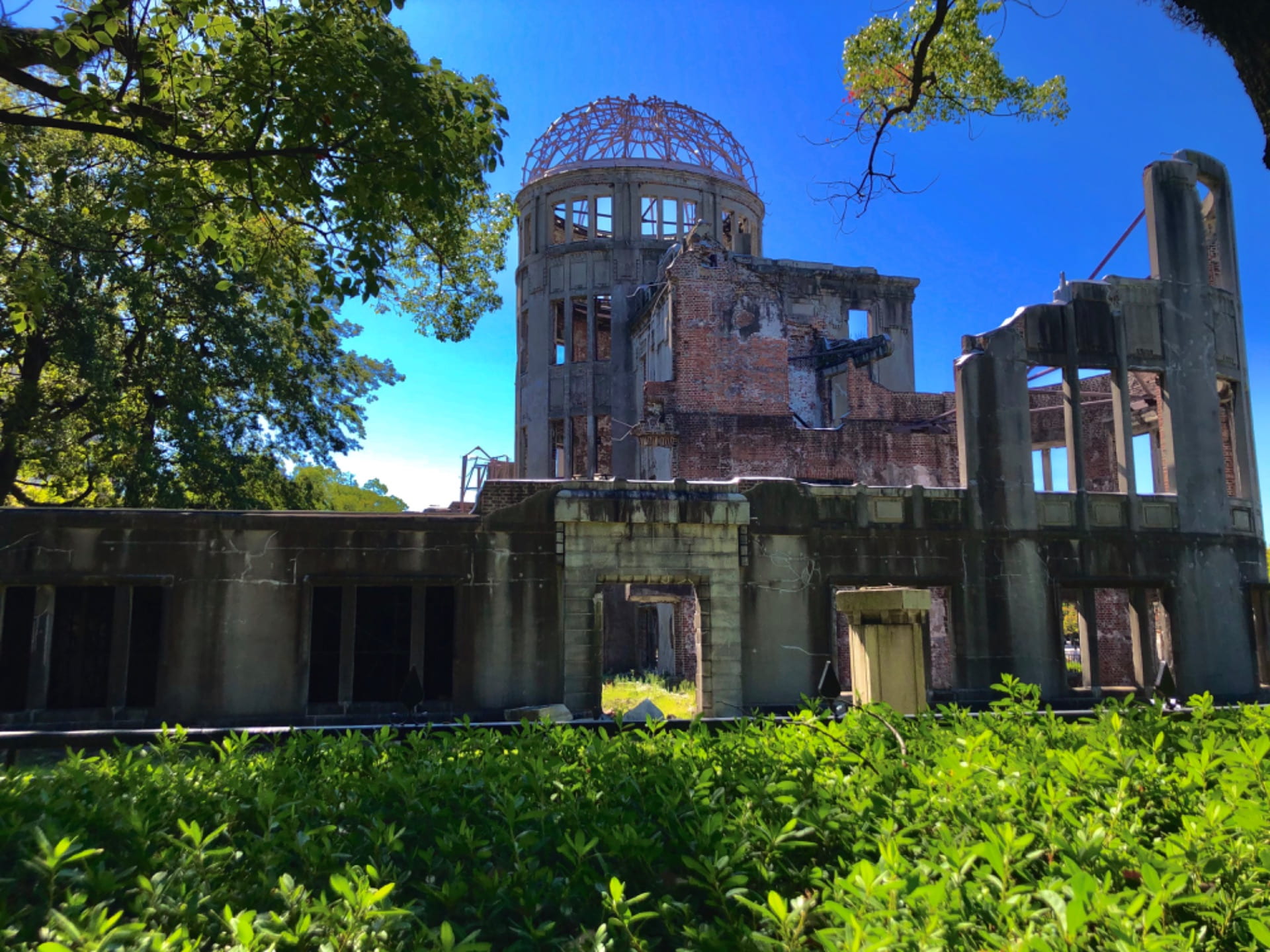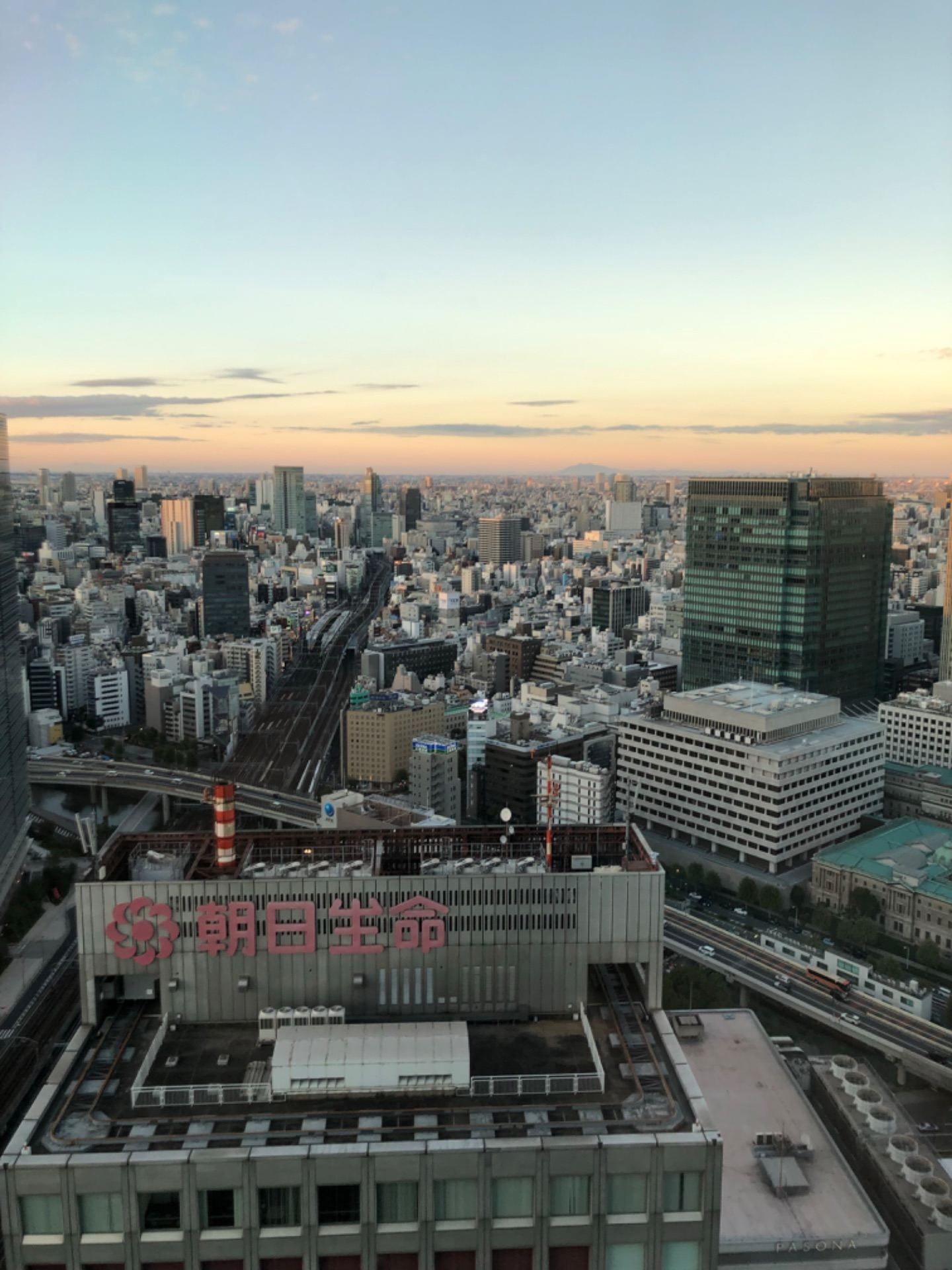Japan is crazy. From the insanely busy tourist destinations to the intestine-serving restaurants, Japan feels very different from home. Along with being unusual, Japan has offered up some interesting experiences too. The ones I’m going to talk about are their plastic usage, the typhoon that I was in and people themselves. I will reflect on how each of these topics will change me when I’m back.
Japan and Plastic Usage:
Japan is a very clean city, although once you really experience it you wonder how. From plastic umbrella wrappers to your bananas being encased in plastic, Japan is the worst consumer of plastic I’ve ever seen.
When talking to some of our guides they explained the rigorous recycling process that happens in their houses. Every day is a new theme. One day you recycle garbage, the next day it’s plastics, the next day it’s aluminum, etc. Every six weeks someone in your community is named the garbage manager. They will look over your community trash and check if everything is meant to be there. Say it’s compost day and you accidentally throw in some plastics. It’s now the community manager’s job to go through your garbage every day with a fine tooth comb for the next week.
For how hard it is to get rid of plastic, you’d be surprised about how easily you get it. If you get a coke, plastic bag. When you buy a waffle, you get it in a bag, in a bag, in a plastic bag. One reason you get so many plastic bags is because the Japanese people think it’s a respectful thing to do. They know that the plastic bag helps you carry things and it serves a good purpose so they give it as a “gift”.
After being told about the system I realized that Vancouver’s recycling system is flawed. Yes, Japan uses a lot of plastic but they’re really good at getting rid of it (but they actually burn it). Vancouver uses a fraction of the plastic but you can see litter and garbage some places you go. Realizing this, I see how important it is to compost and recycle properly.
How has this affected me? I realize I have to change some things when I get back because I don’t always recycle well. I could reuse plastic bags and not throw them away, give bags that I don’t need back, pick up litter whenever I see it, and keep an eye on my family’s litter. This is something that I can’t do by myself. This would need to be done by a lot more people, and the government itself would have to get involved to really show signs of improvement. If I can start doing this it could really help the environment. Now, talking about the environment, onto my next topic…
Typhoon:
Typhoon Hagibis is one of the most powerful typhoons that Japan has had in 60 years. The winds will reach 111mph and it has shut down the Formula One races, and the Rugby World Cup (which is why I’m here). Because Hagibis is a category two typhoon Japan is bracing for impact. They are very prepared for natural disasters like this. They have a lot of safety systems in case of emergency. For example, the escalators have a metal plate that blocks off the stairs from water, the buildings have reinforced steel and are built to sway and move, they have thick re-enforced glass on the windows, and all the stores have shut down in advance to keep people safe. It’s a little weird looking out the window towards a very populated city and seeing only a few vehicles and buildings that are lit up but completely empty inside. The sky is dark gray, clouds are moving really fast, and the wind and rainfall is very dangerous.
Sitting here watching Tokyo, I wonder how prepared Vancouver would be for a storm this size. Even though we have rain all the time, the storm would still flood the streets and flood the underground areas. I’ll be affected by this typhoon in a ton of ways. One example would be my sense of preparation. Stocking up for this storm is a skill that can be transferred onto other situations. Seeing people rush to stock up makes me appreciate the earthquake kits we have at my house a lot more. Another example would be about how grateful I am. In the end, I get to fly home to my house. Some people here are going to lose their homes and that is terrifying. Now, writing this a couple hours before the typhoon hits, I’m realizing how many things I took for granted. I’ve now been in a situation where everything can be taken from you in an instant.
(After the storm) The storm has passed and it wasn’t as bad as they originally thought. At 9:00pm last night the eye of the hurricane passed over Tokyo. If it had been light outside, it would have been amazing to see. Where we were staying, the typhoon didn’t do much damage. Though, along the waterfront and in smaller cities and villages, the damage was much worse. At around 6:23pm there was also a 5.2 magnitude earthquake off the coast of Tokyo. When it happened, our hotel building swayed from side to side as a form of coping with the earthquake. It was a weird sensation and I was scared. Luckily, there was no tsunami and there was no aftershock.
Having been in two natural disasters has been a very scary experience. However now that it’s over I’m happy I got to experience it. When you’re in a natural disaster situation, it’s best to stay calm and not panic. Yesterday I got to test how I would do. I’m happy with how I did but, I could have done much better. I wasn’t that calm and I couldn’t stop thinking about the worst scenario. Next time, I might remember that things might not be as bad as people report and to try to stay calmer for longer.
People:
The entire population of Tokyo is 9.273 million (recorded in 2015). Even though Tokyo has a ton of people, it never feels stressed when you’re walking through the streets because they have a system.
Everybody knows where they’re going to go. Nobody crosses the street while the light is red and nobody rides their bike in the middle of a rush hour crowd. The Japanese people deal with this quantity of people by having very wide sidewalks, crosswalks and nice bike lanes.
In fact, they have a famous crosswalk in Shibuya at a very big city square. When it’s busy they have a recorded 2,500 people walking every time the light turns green. But even then the crowd is walking systematically and organized. Other examples are their line up systems. Whenever you’re supposed to be in a lineup there is either rope to tell you where to go, or there are lines on the ground. The only time the amount of people ever feels like too much is when you’re on a really busy subway train. When you get crammed into a train with people squishing into you on either side it gets a little worrying.
This is going to affect me the most. I would always laugh when my elementary teacher told us to get into a line because it never did anything. Now I realize that was because my classmates and I never truly followed the directions. When people do the right thing and follow the laws it can turn a mess of people into an organized crowd. I realize now that I should follow more rules because I’ve seen how it can help in busy situations.
Overall:
Here is my overall takeaway from this assignment:
-
- I’m am glad that we don’t have 19 typhoons a year, but I’m also glad that I get to experience one.
- Being in two natural disaster is a cool story.
- I’m going to remember how lucky I am to have a house, family, friends, a good education, and a community. I’m also gong to remember how easy it is to lose those things.
- Vancouver could be doing better with recycling and garbage, but I don’t think we’re the worst.
- My personal recycling and garbage disposal needs to be better.
- Any time I’m in a big crowd, I’ll think back to Tokyo and the train stations and try to stay considerate and calm.
- Finally, be happy.









October 23, 2019 at 9:08 am
Greetings
Japan is perfect and everything needs to be in order.Good learnings from your blog especially segregation of waste.
Chandran
Assistant Professor
R.V.Institute of Management
Bangalore
October 23, 2019 at 11:44 pm
G’day Felix,
Sounds like you had an exciting time in Japan. Did you end up going to the Rugby or was it totally cancelled?
I spent two weeks in Japan a few years ago, staying in Kyoto and Hiroshima as well as being home stayed with some teachers who had visited my school in Australia. I was lucky there were no natural disasters happen in that time period but I also was amazed at how orderly everything is there.
I rode the Shinkansen from Hiroshima back to Tokyo then changed trains to go further north by three stations where I was picked up by my teacher friends. I wasn’t there in rush hour so didn’t get all the pushing you often see on the TV.